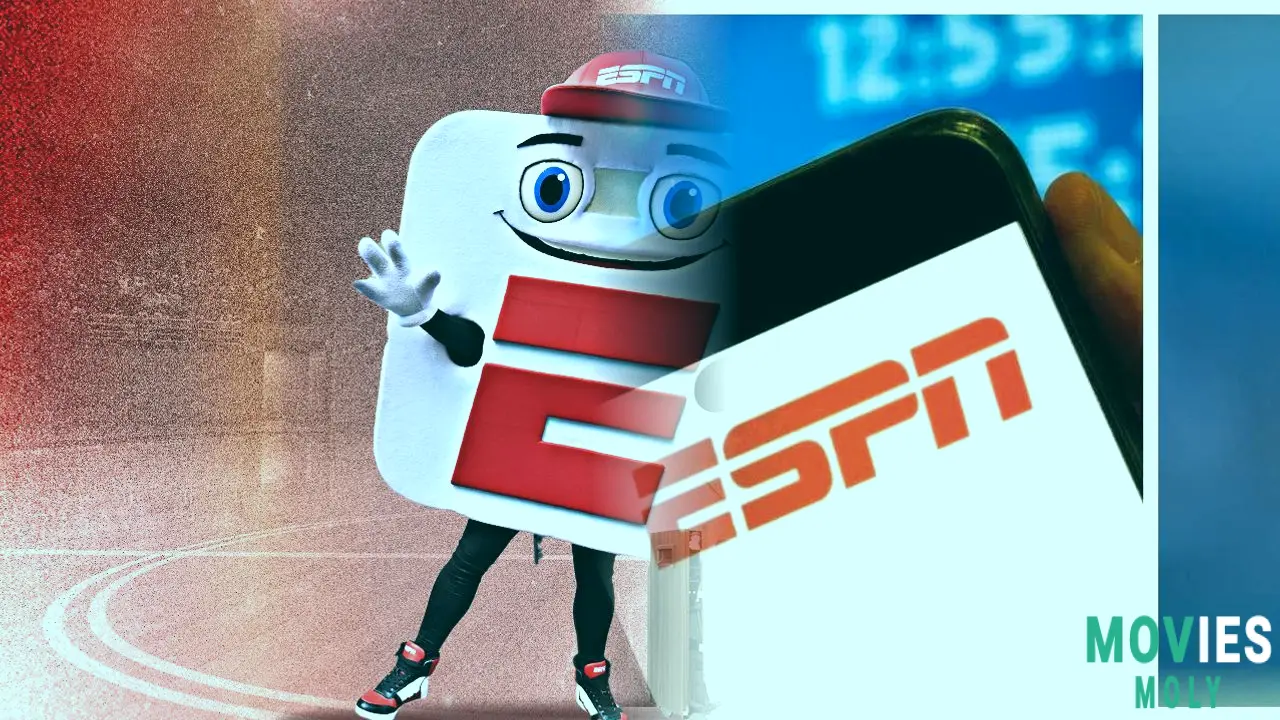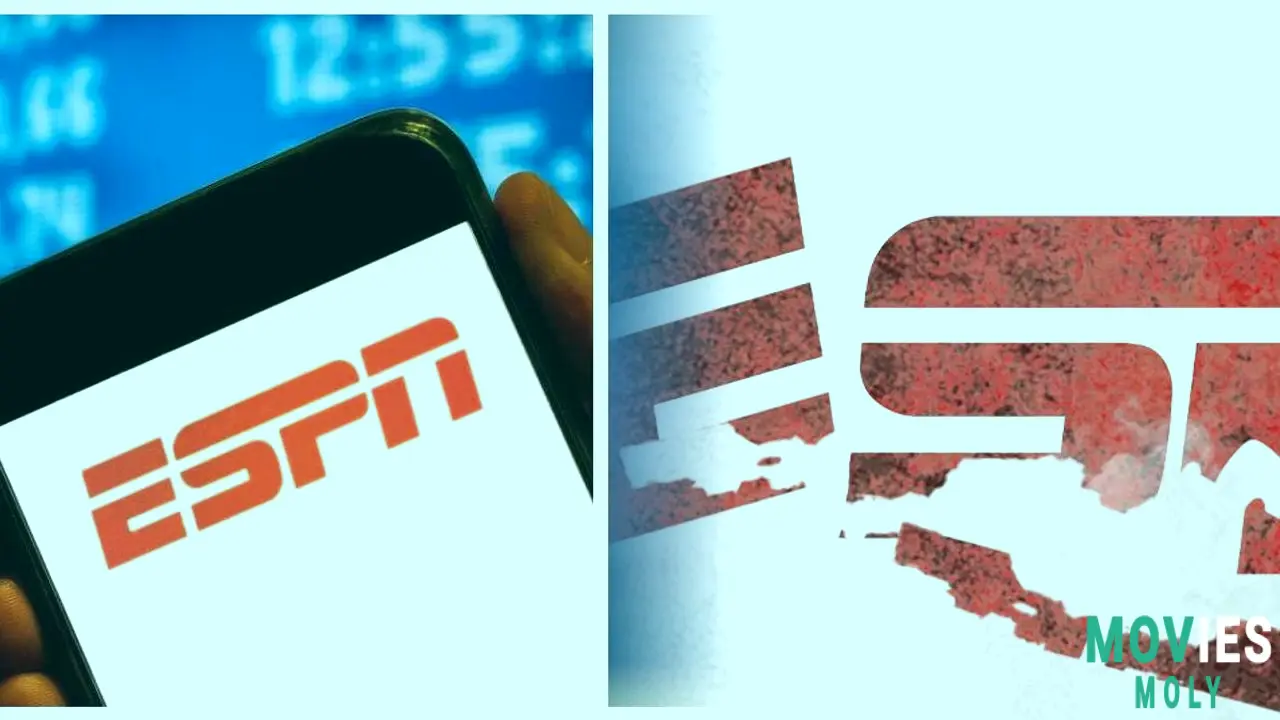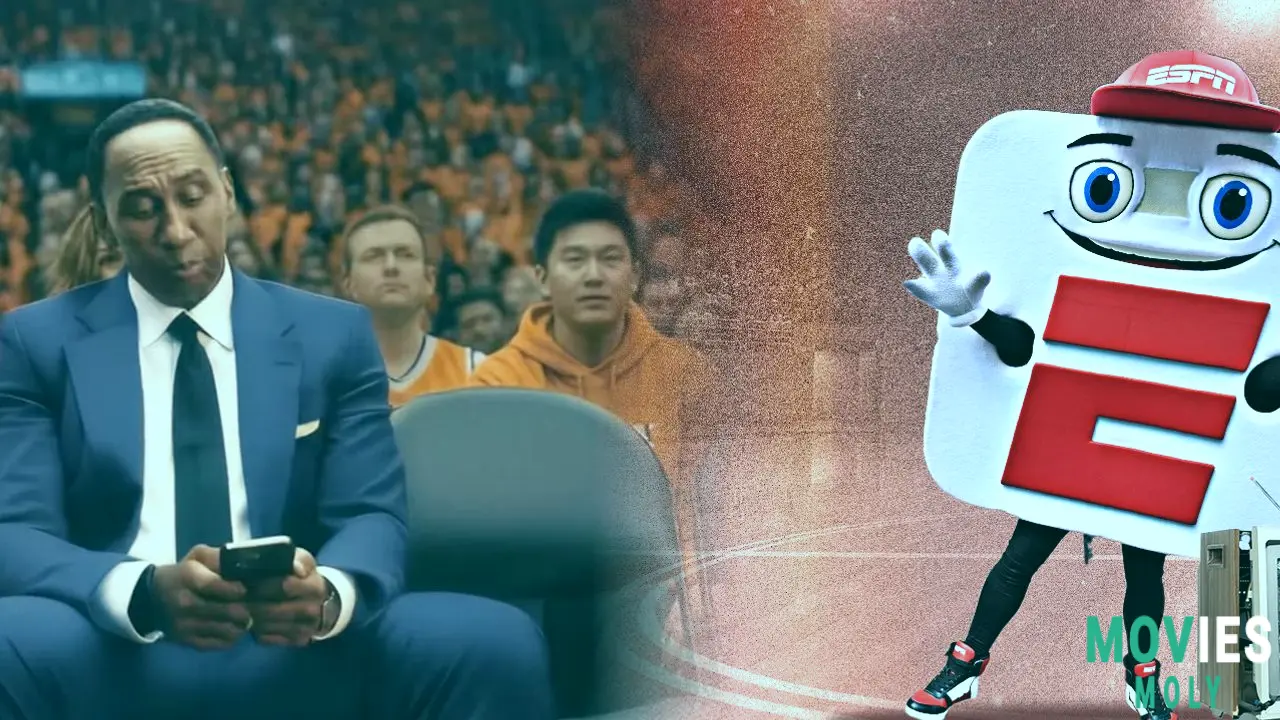Espn has long been synonymous with American sports, a worldwide leader ingrained in our fandom for over 45 years. But lately, something feels different. You might be a YouTube TV subscriber missing Monday Night Football, or perhaps you've just scratched your head trying to figure out yet another ESPN streaming service. Whatever the reason, it seems more Sports Fans than ever are giving the network the side-eye.
TL;DR: The Fan Frustration at ESPN
- A series of business decisions, from carriage disputes to a failed betting venture and confusing streaming options, has alienated a significant portion of ESPN's audience.
- The network's reliance on polarizing personalities has created a "hot take" culture that many fans find exhausting and detracts from the pure love of sports.
- Despite internal business strength and positive brand affinity among younger demographics, ESPN is struggling with its public image, shifting from a beloved "destination" to merely a "distribution platform."
The Digital Divide: When Your Favorite Sports Go Dark
Imagine settling in for a crucial Monday Night Football game, only to find your screen blank. That's the reality for millions of YouTube TV customers who've been caught in an extended carriage dispute between ESPN's parent company, Disney, and the streaming service. Unlike past standoffs where cable companies typically bore the brunt of public anger, this time, many fans are pointing fingers squarely at ESPN.
Even ESPN's own top personalities, like Scott Van Pelt, Stephen A. Smith, and Mike Greenberg, tried rallying fans to ESPN's side on social media. But their pleas fell flat, with fans urging ESPN to just "get a deal done." Pat McAfee, another prominent ESPN voice, openly criticized this strategy as a "losing idea" on air. This sentiment is backed by unscientific polls which indicated fans largely blamed ESPN, a surprising shift from past disputes where the content provider usually won the PR battle. Source: Awful Announcing, "The perception of ESPN is at an all-time low," November 13, 2025.
The impact has been tangible. The Week 9 Monday Night Football game between the Cardinals and Cowboys drew 16.2 million viewers across all platforms, which sounds good until you realize it was down significantly from previous weeks and last season's Week 9 matchup. A 20% dip in viewership is a big deal, and it's hard not to link that directly to the 10 million YouTube TV subscribers who lost access. Source: Sports Illustrated, "ESPN Has Had a Very Bad Week," November 7, 2025.
A Costly Bet That Didn't Pay Off: The ESPN Bet Story

ESPN, usually ahead of the curve, was a late entrant into the booming American sports betting market, hoping the strength of its brand could challenge the dominance of DraftKings and FanDuel. Two dismal years later, they rolled snake eyes. ESPN and Penn Entertainment pulled the plug on their partnership after failing to gain any significant traction, despite a massive marketing blitz across the network's platforms.
It seems the ESPN brand didn't have the "juice" many expected in this arena. The writing was on the wall earlier this year, as numbers showed minimal engagement from sports fans. Penn Entertainment had a similar failed venture with Barstool Sports, suggesting a pattern. Now, ESPN is moving on to partner with DraftKings, effectively admitting defeat in building its own sportsbook powerhouse, a decade after initially passing on an investment deal with DraftKings. It’s a costly lesson, showing that brand power alone isn't enough to guarantee success in competitive new markets.
Navigating the New Streaming Maze: ESPN Unlimited's Puzzling Launch

The gambling industry wasn't ESPN's only big bet this year. They also launched their much-hyped direct-to-consumer platform, simply called "ESPN" but often referred to by fans as "ESPN Unlimited" because that's the comprehensive package. The catch? It's not ESPN+, which already exists and carries some exclusive content. This distinction has led to widespread confusion, causing frustration for cord-cutters and loyal viewers alike.
Even former NFL star JJ Watt expressed his bewilderment on social media, tweeting, "The crazy part is, I have some sort of subscription because I watch Espanyol matches on ESPN+. But I can’t watch MNF. I don’t understand it and quite frankly just don’t really care to figure it out right now. Just frustrating. All of it." Source: Matt Yoder, Awful Announcing, "Why the Vibes Around ESPN Have Never Been Lower," November 6, 2025.
ESPN Unlimited was designed to offer another option for fans and a new digital revenue stream, featuring exclusive content like WWE premium live events and the return of Rich Eisen. However, access varies depending on existing providers, and the promise that existing ESPN subscribers would have immediate access to Unlimited quickly proved untrue. This creates a massive "consumer education problem" that ESPN has yet to adequately solve, leaving fans to untangle a complicated web of subscriptions and access rights.
When Good News Feels Like Bad News: RedZone and Inside the NBA Under ESPN's Wing
In the past year, ESPN brought two beloved sports properties, NFL RedZone and Inside the NBA, under its larger umbrella. Logically, this should have been cause for celebration. Yet, both announcements were met with immediate panic and anxiety from fans worried ESPN would fundamentally change or "mess up" these iconic shows.
For RedZone, now part of a proposed ESPN-NFL equity deal (with the NFL maintaining production), the immediate fan reaction was a collective hope that Pat McAfee wouldn't replace the legendary Scott Hanson. Similarly, when Inside the NBA joined ESPN, the network had to quickly assure basketball fans that Stephen A. Smith wouldn't take over the beloved TNT set. So far, ESPN has kept its word, allowing the show to continue largely as-is, with ESPN personalities contributing only as reporters, not in the studio. This cautious approach highlights the deep-seated apprehension fans now have towards ESPN's influence.
It's a stark contrast to a generation ago, when ESPN's acquisition of major properties would have been hailed as a win, promising exciting crossovers and enhanced programming. Now, any move ESPN makes is met with a skeptical eye, revealing a significant shift in fan perception and trust.
The Era of the Loudest Voices: Polarizing Personalities Take Center Stage
A significant source of fan frustration stems from what many describe as the "exhausting" nature of watching ESPN, especially its studio programming. While game coverage often receives praise, the network's personality-driven approach, particularly during daytime talk shows, frequently sparks controversy and debate. Stephen A. Smith, with his new contract allowing him broad freedom, has turned First Take into his personal platform, addressing everything from LeBron James to political warnings. His shadow looms large over the sports media landscape.
Pat McAfee, despite finding a groove on College GameDay, remains a magnet for conflict, constantly sparring with critics and facing reports of "diva" behavior. This combative spirit, where the loudest and boldest voices are often rewarded, permeates the network. It's led to a generation of sports media personalities following a "Hot Take Blueprint," which can, for many fans, "suck the joy out of being a sports fan fairly quickly." We've seen this play out with ESPN NFL analyst Ryan Clark, who, it seems, has offered "more apologies in the last year than Patrick Mahomes has 300-yard passing games." Source: Matt Yoder, Awful Announcing, "Why the Vibes Around ESPN Have Never Been Lower," November 6, 2025.
Example: The Solitaire App Controversy In a particularly "sketchy" incident, Stephen A. Smith and other prominent ESPN personalities like Dan Orlovsky, Mina Kimes, Kendrick Perkins, and Laura Rutledge, recently promoted "Solitaire Cash," a mobile game. The problem? The game's developer, Papaya Gaming, is currently facing a lawsuit for alleged false advertising and "rigged games" that reportedly pitted human players against computer-controlled adversaries to guarantee specific outcomes. This move, particularly while ESPN itself is grappling with its sports betting ventures and covering gambling scandals, further eroded trust and drew sharp criticism from various media outlets. Source: Sports Illustrated, "ESPN Has Had a Very Bad Week," November 7, 2025.
More Than Just a Channel: ESPN's Evolving Role in Sports Media
Perhaps the most fundamental shift underlying ESPN's current struggles is its evolution from a "destination network" to a "distribution platform." A decade ago, during cable's peak, over 100 million homes paid for a TV bundle, and ESPN felt like a free, essential part of the package. Leagues eagerly sought to air games on what was considered the go-to platform for sports. Artie Bulgrin, ESPN's then-director of research, noted in 2013, "People tune in to ESPN without even knowing what’s on." Source: Jacob Feldman, Sportico, "ESPN Has Become the Sports World's Utility Provider," November 13, 2025.
Today, ESPN is in roughly 61 million homes via cable or digital alternatives. The rise of streaming services like Amazon and Netflix, offering their own bundles and live sports, has diluted the cable bundle's allure. Fans now have countless free alternatives like TikTok and Instagram for sports content. ESPN, once an empire, now looks more like a "city-state" in the vast atlas of media options.
ESPN's roughly $80 billion in rights commitments to leagues, while a massive asset, has been described by writer Derek Thompson as not ESPN's "moat," but "the entire castle." Live games are more valuable than ever, making ESPN a crucial "pipe" through which fans access NFL, NBA, and college football action. Yet, "no one roots for pipes," and fans increasingly value ESPN simply for the content it delivers, not as a beloved brand in itself. This shift puts ESPN in a challenging position, as it takes on the complaints about rising prices and technical difficulties that were once aimed at cable companies.
What It All Means for You, The Everyday Sports Fan
While the fan-facing issues are numerous, it's worth noting that internally, ESPN's business is often described as thriving. ESPN president Jimmy Pitaro, brought in in 2017 for his digital savvy, is even touted as a potential successor to Disney CEO Bob Iger, suggesting confidence in the network's financial health. YouGov BrandIndex data shows ESPN outperforming industry brand equity averages by more than 60%, and its reputation appears strongest among young consumers (Gen Z) who view ESPN more as a collection of digital platforms than a traditional TV network. Source: Jacob Feldman, Sportico, "ESPN Has Become the Sports World's Utility Provider," November 13, 2025.
Furthermore, all 10 of ESPN's daily studio shows reportedly posted year-over-year audience growth. However, this internal success doesn't always translate to public goodwill. ESPN has done well to manage the cable-to-digital transition better than many peers, but the current environment means it faces intense scrutiny and criticism from all sides, some deserved, some simply the reality of a polarized media landscape. While ESPN believes things are going well, for many sports fans, the constant drama and confusion are chipping away at decades of built-up trust.
Practical Takeaways for the Engaged Sports Fan:
- Embrace a Multi-Platform Approach: Don't rely on a single service for all your sports. Rights are fragmented, meaning you might need multiple subscriptions (ESPN, Amazon, Peacock, etc.) to catch all the action.
- Stay Informed on Carriage Disputes: Keep an eye on news about ESPN and your TV provider. These impasses can disrupt your viewing and are becoming more common.
- Vet Streaming Options Carefully: Before subscribing to a new ESPN service, understand exactly what content it offers and if it truly solves your viewing needs, especially given the "Unlimited" confusion.
- Focus on the Games: If studio shows and personality-driven content aren't your cup of tea, remember that live game coverage remains ESPN's strong suit. Seek out the pure sports.
FAQ: Your Quick Questions About ESPN
What caused the YouTube TV-ESPN standoff? The dispute is over carriage fees and distribution rights between Disney (ESPN's parent company) and YouTube TV. Until a new agreement is reached, YouTube TV subscribers cannot access ESPN networks. Why did ESPN Bet shut down? ESPN Bet, a partnership with Penn Entertainment, failed to gain significant traction in the competitive sports betting market after two years. ESPN has since moved on to partner with DraftKings for its sports betting integrations. What is ESPN Unlimited, and how is it different from ESPN+? ESPN Unlimited is the term many fans use for ESPN's new direct-to-consumer streaming service, simply named "ESPN." It's intended to offer all ESPN streaming in one place. ESPN+ is a separate, existing subscription service that offers additional content, but not all of the linear ESPN channels. Are ESPN's ratings really down? Yes, some recent ratings, like for Monday Night Football, have shown dips. While various factors contribute, the ongoing YouTube TV carriage dispute is believed to be a significant cause, impacting millions of potential viewers.Sources:
- Matt Yoder, Awful Announcing, "Why the Vibes Around ESPN Have Never Been Lower," November 6, 2025.
- Jacob Feldman, Sportico, "ESPN Has Become the Sports World's Utility Provider," November 13, 2025.
- Stephen Douglas, Sports Illustrated, "ESPN Has Had a Very Bad Week," November 7, 2025.
- Austin Karp, Sports Business Journal, "SBJ Voices: The YouTube TV-ESPN battle continues; the NFL debuts in Berlin; and an expert’s view of the landscape," November 7, 2025.

